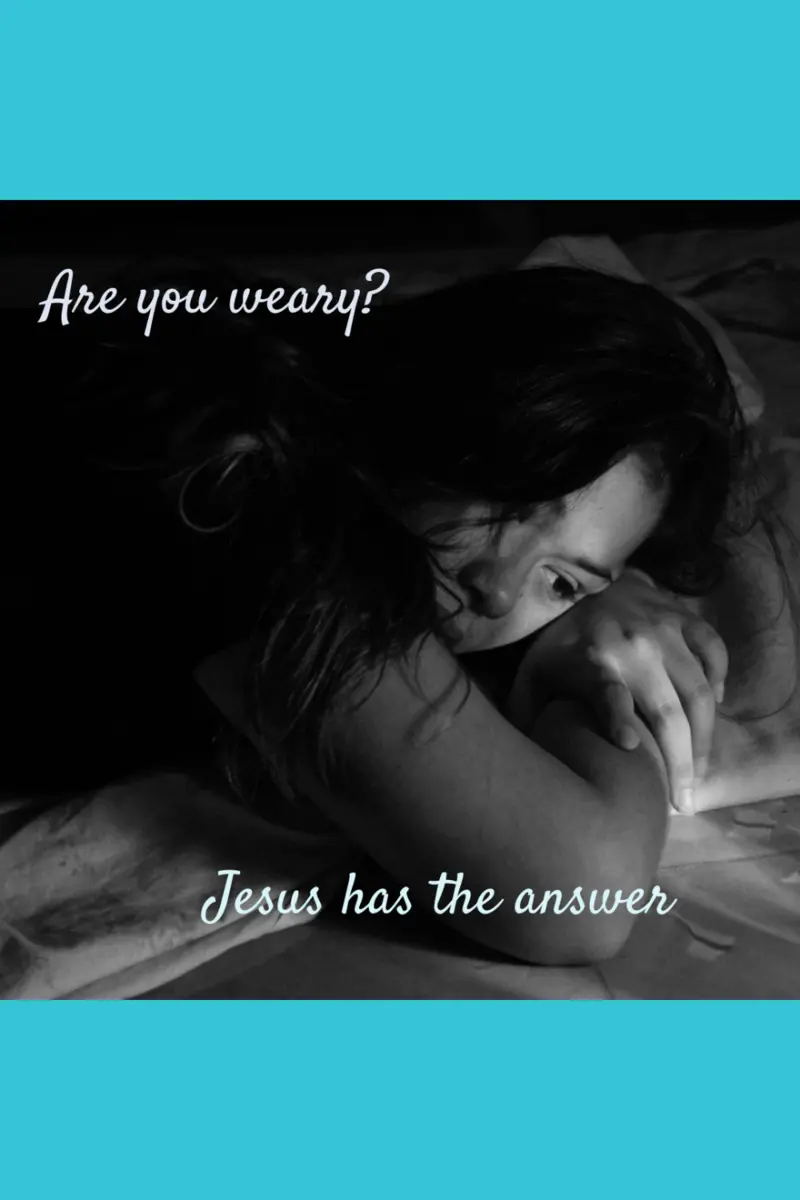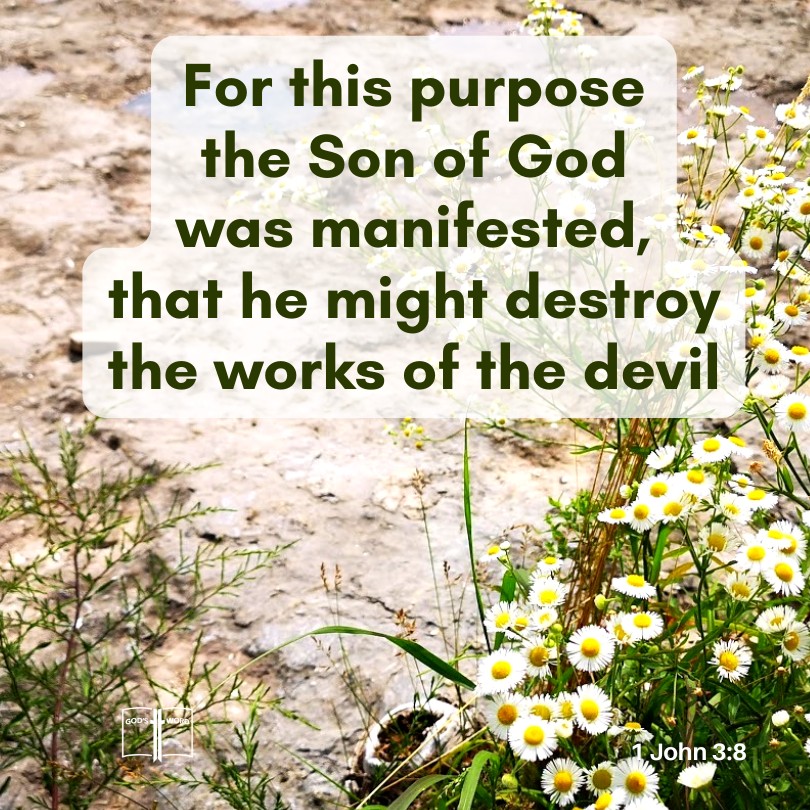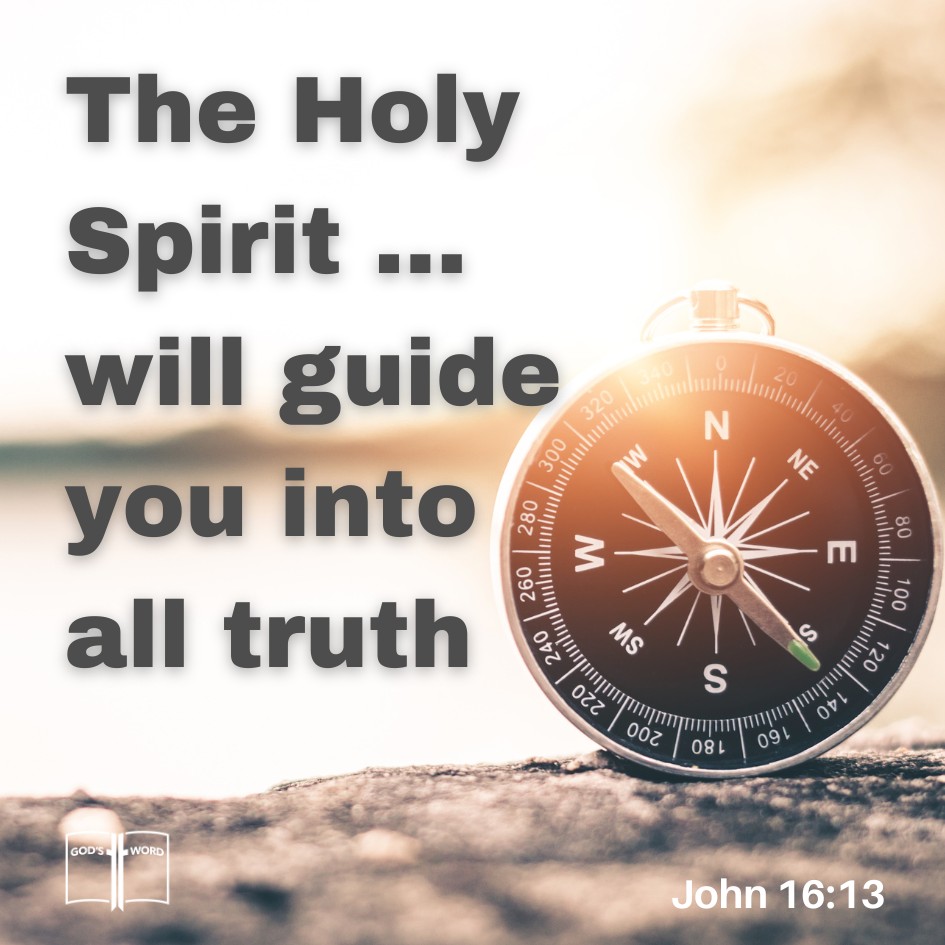- Home
- Encouragement
- When Life Feels Heavy
When Life Feels Heavy
➤ by Isabel Jennings
In our world today, repetition in our writing is often seen as something negative. Students are told to use a thesaurus and use synonyms to avoid being repetitive.
Authors from biblical times, however, were under no such literary restrictions. They commonly used repetition as a literary device, repeating words, phrases, or other elements to draw the reader’s attention to something.
It would be like when we underline or bold text in our modern writing. It draws our attention to and accentuates those words.
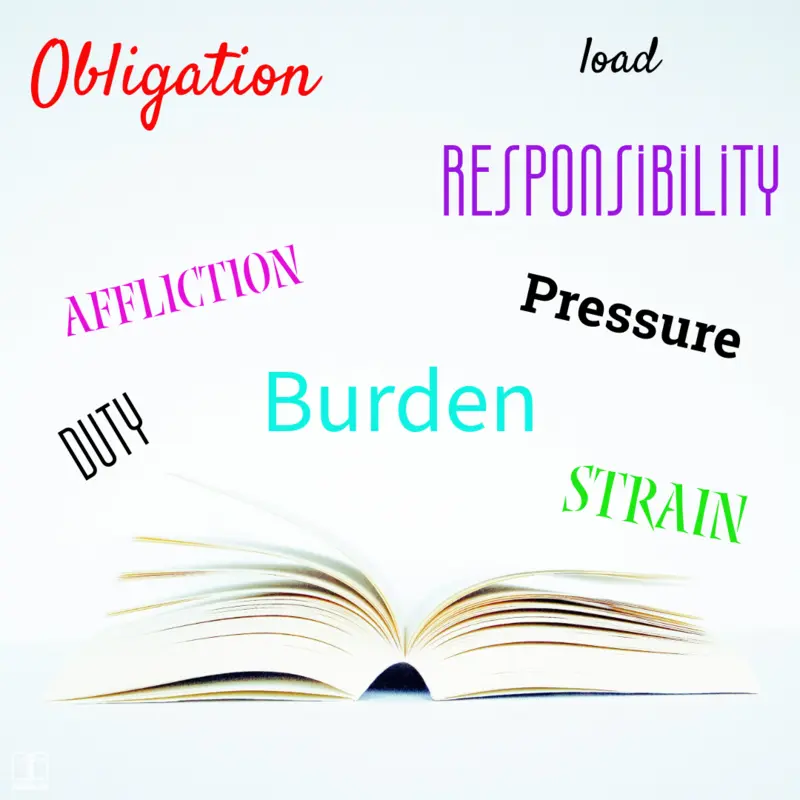
The gospels are filled with repeated stories of Jesus running into weary people. People who were burdened by sickness, oppression, deformity, and sin.
The woman with the blood issue, who had bled for 12 years, had spent all her money going to doctors who only made her worse. She was sick and alone (Mk 5:25–34).
The woman at the well, was a societal outcast. She was filling her water jugs during the hottest part of the day, when most women were inside out of the sun. She wanted to avoid the stares and judgmental words of those women, who all knew what sins she had committed.
She had had 5 husbands and the man she was currently living with wasn’t her husband either. It was scandalous for her time. We have no idea why she was passed off from one man to another, nor how used and broken she was. We do know that she was an outcast and a sinful woman who was very alone (Jn 4:7-19).
The man at the pool of Bethesda had been lame for a long time. He had been brought to sit at the pool there because it was said that the angel of God often stirred the waters. It was believed that the first person to enter into the pool, after the waters were troubled, would be healed.
When Jesus met this man, he had lost the will to even try to get in the pool anymore. He had tried so many times, but others always beat him in (Jn 5:2-7).
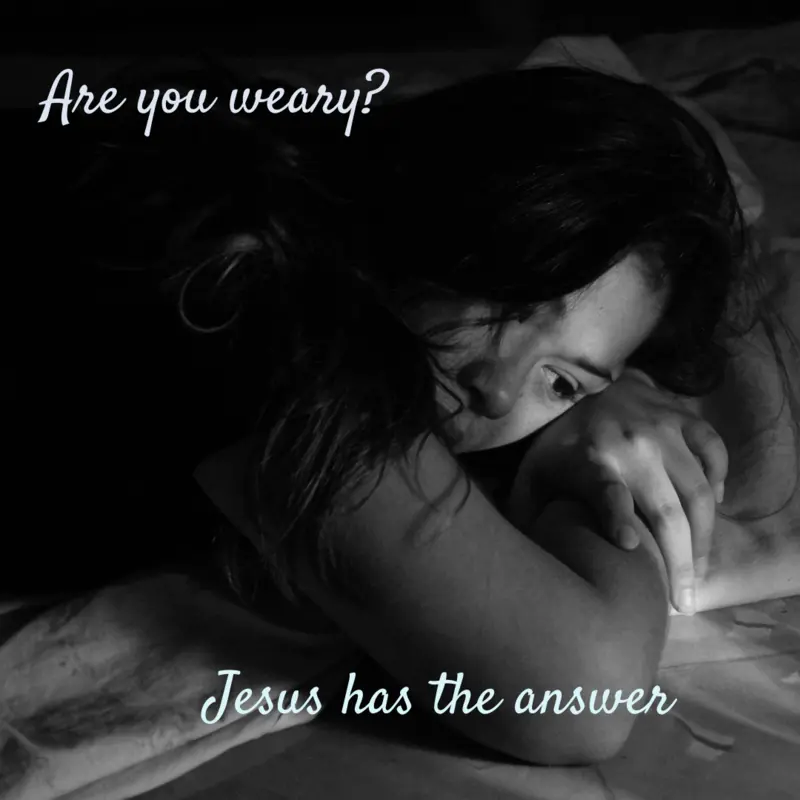
The woman caught in adultery was about to be stoned. She had been caught in sin and men had dragged her and thrown her at the feet of Jesus (Jn 8:3-6).
She probably had heard of Jesus and probably knew that he was a teacher. Maybe she had heard the whispers of some who thought He was the Messiah. Now she was thrown at His feet to be executed. How much shame did she feel? What kinds of looks of disgust did she receive, having been caught in sin?
The 10 lepers were outcasts because of their disease. Not only were they sick, but they could have no contact with anyone they knew or loved (Lk 17:12-13).
The widow of Nain, was on her way to bury her only son. Widows relied on family to take care of them. She was now son-less and her opportunities were limited (Lk 7:12).
Zaccheaus was a tax collector (Lk 19:2). It was a lonely existence. He worked for Israel’s captors, the Romans, yet he stole from his own people. He had made himself rich on the backs of the poor, and so he was hated and alone. When Jesus came to his town, he was hidden in a tree trying to see Him, trying to avoid being seen.
The Gospels repeatedly draws attention to these types of people. In these stories, there was one common theme: Jesus came into some of these people’s lives, some who were at their lowest moments without hope, and He was filled with compassion for each one.
These were the people that Jesus specifically sought out and chose to minister to. The sick need a doctor, and the lost need a saviour. Jesus was called to those who were wearied by their lives and were heavily burdened with poverty, sickness, oppression, and sin. He was called to those carrying around a “heavy thing” that they just had no power to either throw away or overcome, on their own.
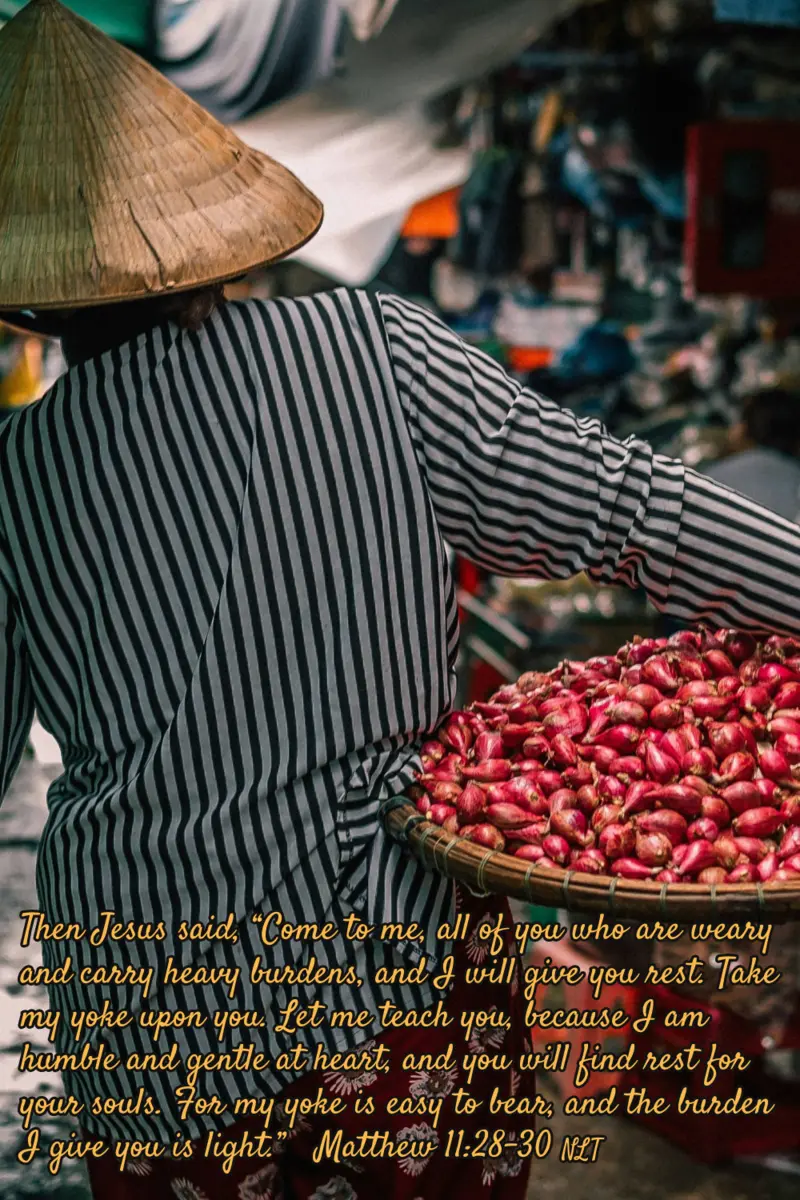
Then Jesus said, “Come to me, all of you who are weary and carry heavy burdens, and I will give you rest. Take my yoke upon you. Let me teach you, because I am humble and gentle at heart, and you will find rest for your souls. For my yoke is easy to bear, and the burden I give you is light,” Matthew 11:28-30 NLT.
WHAT IS A YOKE?
A yoke is not just some old-school farming tool or a historical artifact. It is a symbol of bondage. It is a symbol of a heavy weight. It is a symbol of something that pressing down on you, keeping you stuck and trapped.
Back in Jesus’ day, people easily recognized what Jesus meant by a yoke. They saw it daily on the necks of animals to control them. Rome was out conquering nations, turning free people into captives. They saw it on the backs of slaves, oppressing them. The Israelites knew the pain of the yoke firsthand—they had spent generations as slaves in Egypt, burdened, beaten down, and crying out for freedom.
However, when Jesus talks about a yoke, He’s not talking about a piece of wood on an animal or on the back of a slave. He’s talking about sin—that weight that is carried, that burden that can’t be shaken off. It's that thing that keeps pulling you back when you try to move forward or be free from.
It's that thing that you can’t break free from on your own. Not through religion. Not through perfection. Not by trying harder. Even the most religious people in Jesus’ time—people who prided themselves on following every law, checking every box—still couldn’t set themselves free.
That’s why Jesus came. That’s why the cross happened. Because the yoke of sin was too heavy for us to carry. But when Jesus stretched out His arms, He lifted the weight off our shoulders.
Jesus is offering you a different kind of yoke. A yoke that isn’t about slavery—it’s about strength. A yoke that isn’t about control—it’s about connection and relationship. A yoke that isn’t about carrying your burdens alone—it’s about walking with Him, and He carries them.

Being yoked with Jesus means stepping into grace. It means believing that He is the spotless Lamb of God, the One who took the full weight of sin so you could walk free. It means trading your heavy burden for His light one—because His yoke is easy, and His burden is light.
That’s why Jesus came. That’s why He stepped into the mess of humanity—into the sickness, the shame, the struggle—because He knew we couldn’t lift that weight on our own.
And the good news? He didn’t come to add another burden to our backs. He came to break the yoke. He came to carry what we couldn’t carry.
So if you feel like you’re stuck under the weight of something too heavy—if you’ve been carrying shame, guilt, fear, or failure—Jesus is saying to you right now, “Come to me.” Not “fix yourself first.” Not “clean up your act.”
Just come.
Come with your brokenness, your weariness, your questions. Come with the thing you think disqualifies you. Because He’s not asking you to carry it alone. He’s offering you His yoke, His way, His grace.

Jesus called you to:
Exchange your sins for his salvation;
Take on His peace in exchange for your anxiety;
Take your mourning and replace it with His joy;
Replace His beauty for the charred ashes of your life.
He is present in your pain, and He sends His Word for your healing.
He sent His Spirit, Who never leaves you, to replace your loneliness.
Come to Him. Your rest is waiting.
From the article, Quando a Vida Parece Pesada, by Isabel Jennings
Go ye therefore, and teach all nations, baptizing them in the name of the Father, and of the Son, and of the Holy Ghost: Teaching them to observe all things whatsoever I have commanded you: and, lo, I am with you alway, even unto the end of the world. Amen.
Matthew 28:19-20
Unless stated otherwise, all Bible passages quoted in orange are from the KJV translation.


